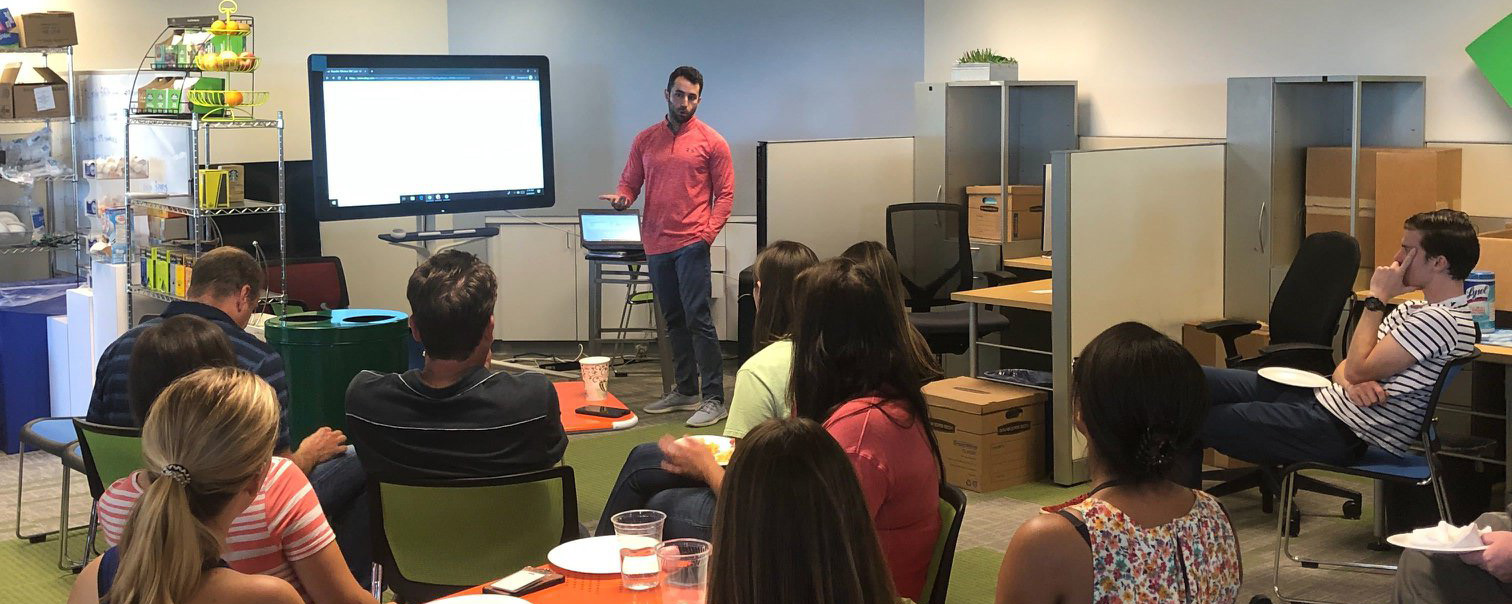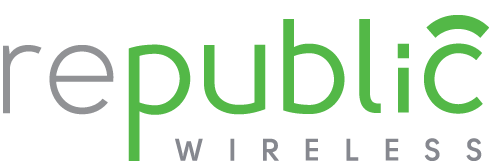Republic Wireless taps Zendesk to capture market share
共和国无线明白创新的刺激ucts need innovative customer support. The wireless mobile phone provider saw a 98% improvement in first response time and achieved 94% customer satisfaction after implementing Zendesk.

“We would not be able to do what we do at Republic Wireless today, and be arguably one of the most innovative support environments out there, if we weren’t using Zendesk.”
Doc Shufelt
SVP and General Manager of Republic Wireless and ArenaCX at Republic Wireless
“We’ve built a platform that allows us to set KPIs that are meaningful to us and our partners, pay them per ticket instead of per head count, and reward the best-performing partners with increased share of Republic Wireless’s ticket demand.”
Doc Shufelt
SVP and General Manager of Republic Wireless and ArenaCX at Republic Wireless
Products used
Industry:
Telecommunications
Headquarters:
Raleigh, NC
Size:
150
CSAT:
94%
175
Agents
-32%
Cost decrease
-98%
Ticket response time
-34%
Ticket volume
这是一个聪明的方式与电信巨头们竞争:customer service. Given that telecoms are historically one of the least-liked industries, you could set the bar pretty low and still come out on top with this approach.
However,Republic Wireless, a trailblazing wireless mobile phone provider with more than 65 patents for its Wi-Fi-first hybrid VoIP calling platform, aimed high—very high.
“Somebody needs to be the white knight in this industry, and as a smaller player, one of the ways we could compete was with our customer service,” said Alan Pendleton, the company’s vice president of member experience and supply chain. “We weren’t going to be able to spend the marketing dollars that would get us Super Bowl ads, so we focused on really pleasing our members, forming a relationship with them, and relying primarily on word of mouth to grow.”
Innovative products need innovative customer support
Launched in 2011 out of Raleigh, North Carolina–based Bandwidth, a communications-platform-as-a-service company, Republic Wireless was born with the notion of selling a mobile phone that harnessed the power of Wi-Fi.
“We were just an upstart that decided we were going to do this really cool thing—offering a $19 per-month service with unlimited data, unlimited calling, and unlimited text service,” said Sean Rivers, director of operations technology for Republic Wireless. “We sold three times the number of phones in our entire launch inventory in the first three hours, before order demand crippled our server. It was an incredible time!”

The low price and freedom from contracts were newsworthy, but the phone itself—an Android-based smartphone engineered to work natively on Wi-Fi—was an industry disruptor. “If I make a call in a room where there is no cellular coverage, I will actually go over Wi-Fi,” Rivers said, “and if I walk out, the phone will immediately move over to a cellular network. If I walk back in, I’ll move back to Wi-Fi.”
From the outset, the customer base for Republic Wireless phones was as diverse as it was enthusiastic. The company saw high adoption rates from the early adopter crowd, thrifty savers, as well as first-time smartphone users. From a support perspective, this broad customer base required agents to handle a wide spectrum of inquiries of varying technical complexity while keeping up with the demand from a steadily growing user base.
But the ticketing system in place made this challenging.
“We started out with Salesforce,” said Rivers, “because we were a Salesforce company at Bandwidth. But we thought the interface was difficult, and the experience for our agents and our customers was not optimal. We were losing a lot of tickets, and it was difficult to maintain an ongoing conversation.”

That’s because every interaction was treated as a single, isolated event, and it was hard to see when a customer replied or reopened a ticket. Republic wanted a tool that allowed for ongoing dialogue, as well as one that would enable the company to affordably scale as it expanded. Rivers also needed to reduce Republic Wireless’s backlog (roughly 10,000 tickets) and time-to-resolution rates.
“We decided we should be just as innovative with our support as we were with our product,” said Doc Shufelt, senior vice president and general manager of Republic Wireless.
One of the innovations? In 2012, Republic Wireless moved toZendesk Support. The benefits were impressive from the outset: a 90 percent improvement in first reply time, reduction in response time per ticket from between 35 and 40 hours to between 1 and 2 hours, and an increase inCSATscores from the mid-60s to upwards of 90 percent.
Superior self-service with Zendesk Guide
In what may seem a counterintuitive move for a cell phone provider, Republic Wireless made a calculated decision to not publish a phone number for inbound support calls. The reason? Customer experience. The Republic Wireless team agreed that calling a number and being put on hold to speak to a representative was an antiquated practice, and they wanted to give their members a better experience. The team believed that customers would much rather visit a help site or community for answers to the most common questions than call a 1-800 number. To that end, the Republic Wireless team made developing a robust knowledge center—built withZendesk Guide—a top priority.

“We’ve grown from 250 articles to more than 6,000 today. From an average of 25,000 tickets a month, we’re down to about 16,500 tickets now,” Pendleton said. “People are finding their own answers much faster, because there’s already an article written to solve their issue.”
Republic Wireless has been able to achieve this proliferation of articles by requiring its agents—internal and external—to use an existing article, edit it as necessary, or write a new article as part of processing a ticket. The completeness and ease of use of Republic Wireless’s help center has not gone unnoticed. The company was included in the Year’s Ten Best Web Support Sites by theAssociation of Support Professionalsin 2018 and2019.
Streamlined triage
Company co-founder and CEO Chris Chuang also felt the first-in, first-out nature of phone support inhibited any ability for the company to prioritize the interactions. “He wanted us to make sure that we were addressing the most urgent issues for our customers first, and the only way we could do that was by harmonizing the way those issues came in, which is why all tickets whether coming in from email, our app, or a webform all come into the system as email tickets,” Rivers said.

Initially, Republic Wireless began by manually triaging every ticket that came in. Over time, the company gathered enough data to use machine learning and natural language processing to automate triage for 80 percent of its inbound tickets. The Republic Wireless team estimates 35 to 40 percent of tickets are passed along toDirectly, a platform that enables peer-to-peer customer support where requests are handled by a thousands-strong customer community. Those tickets that have member-specific data or are more technical in nature are sent to the team best capable of answering them.
Third-party comprehensive support
Early on, the company developed its own internal contact center, “because we needed to build up a knowledge base and understand what customers needed and expected from us,” said Pendleton. “The problem was that we were growing so quickly that we could never seem to hire enough agents to keep up with the backlog.” It was during this period of growing pains that the company also dealt with a decline in customer satisfaction levels, back to the mid-80s.
Although initially skeptical that external agents would be able to match the quality of internal agents, the need to get more leverage from its support operating model propelled the company to explore business process outsourcers (BPOs).
“We started by just dipping our metaphorical toes into outsourcing, and once we proved that third-parties could deliver fast, high-quality responses that pleased our members, our relationship with external partners began to grow,” Pendleton said.

At the onset, Republic Wireless engaged with its BPO partners in the standard industry way—paying for the full time of an agent, whether that agent was fully utilized or not. It didn’t take long for the supply chain vet to get frustrated with the fixed agent costs despite having varying amounts of tickets.
“We realized that planning for headcount instead of planning for the real demand unit—which is a ticket or an interaction in our case—deprived our BPO partners from being a true service provider and partner,” Pendleton said. “With supply chain, you’re balancing demand with supply or capacity in real time, all day long. Why is that not done with tickets?”
Increasing performance with competition
True to its innovative nature, the company built a solution that allows it to work with multiple BPOs simultaneously and dynamically adjust capacity with fluctuating ticket volumes. “We set it up so that the BPOs compete against each other for ticket volumes,” said Shufelt. “We’ve built a platform that allows us to set KPIs that are meaningful to us and our partners, pay them per ticket instead of per head count, and reward the best-performing partners with increased share of Republic Wireless’s ticket demand.”
The solution has been a tremendous boon to the company. “We’ve been running it for more than two years now,” Pendleton said. “Our CSAT went up a full 10 points. Our costs went down 32 percent. We saw our time-to-first-contact cut by 80 percent.”
Now, four external teams compete to handle the bulk of requests, while Republic Wireless has one small internal team that primarily handles escalations, highly complex issues, and strategic customer experience improvements. Today, the company’s CSAT hovers between 93 and 94 percent.
The future with Zendesk and partners
Republic Wireless has begun productizing the platform it built, now known asArenaCX, and a few customers are already piloting the technology. “We believe what we have built at Republic Wireless is without a doubt applicable to other businesses, and are excited to help other companies achieve significant customer support results,” Shufelt said.
ArenaCX是第一个业务流程外包市场,对有限公司mpanies with vetted BPOs who are ready-to-onboard and start handling their tickets. The marketplace aligns the interests of the brand and the BPO, by rewarding the best-performing BPO team with a bigger and bigger share of the brand’s ticket volume if they continue to outperform their peers.

As ArenaCX rolls out as a B2B product, the team is looking atZendesk Sellto empower the company with a healthy sales process. “We’ve found Sell’s ability to hook into our email history and automatically pull those conversations into the platform extremely helpful,” Pendleton said. “We also appreciate the task management, calendar sync, and the beautifully simple interface.”
The team is also excited aboutSunshine Conversations, which enables organizations to unify messages from every channel into a single conversation and build interactive messaging experiences. “This solution is a natural fit with ArenaCX as it will allow us to really maximize the value of the triage and routing capabilities we have built and apply it to previously synchronous channels, like chat,” Pendleton said. “This will truly help us unlock our solution.”
